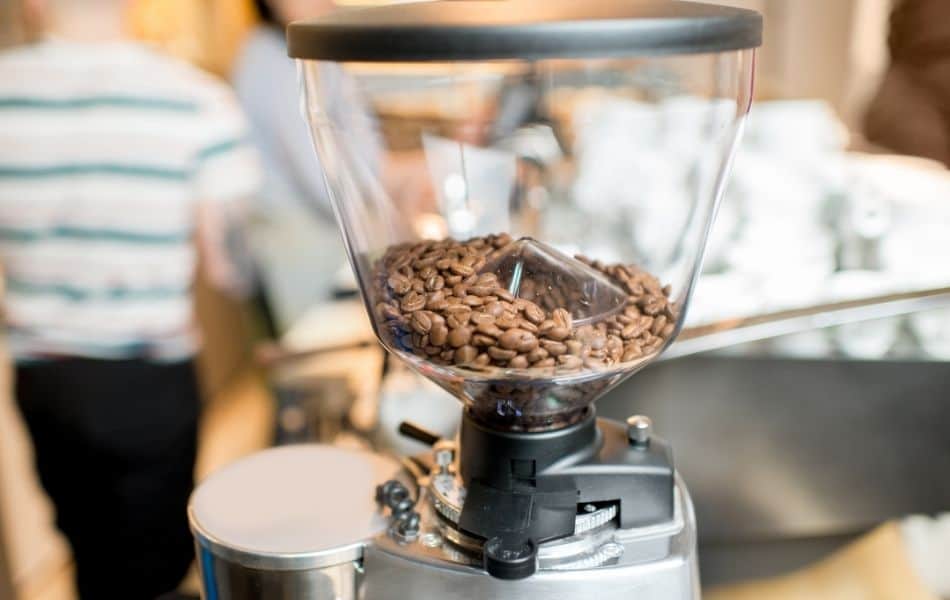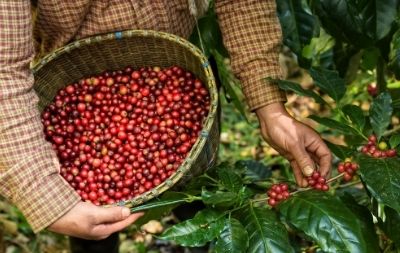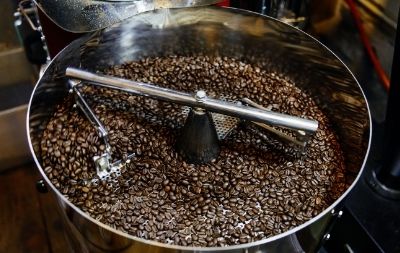
If you have taken the admirable step of getting yourself a coffee grinder and buying your own beans, rather than getting your coffee pre-ground, or buying instant, then you are already well down the rabbit hole, so you’ll no doubt want to know all the nitty-gritty details about grinding coffee.
Should you grind coffee beans the night before? Grinding coffee beans the night before will cause them to lose aroma and flavor due to oxidation from increased surface area. It is recommended to grind your beans right before brewing your coffee to get the maximum flavor. If you do grind the night before, store in a cool, dry and dark place.
Of course, we understand that this isn’t the most practical of situations-making a great cup of coffee is already a slow, methodical process without adding bean-grinding into the mix every time you want a cup.
Ultimately it boils down to this: if you want the best possible results from your beans, you should always wait until you are ready to make your coffee before grinding the beans. Now, do you need the absolute best cup of coffee every single time? That’s something only you can decide.
Unfortunately, as is the way with the universe, all the best things take time, and just as you can’t rush the process of making the coffee, nor can you employ time-saving measures like grinding a big batch of coffee beans and storing them for later use.
Why grinding the night before causes coffee to lose flavor and aroma
Grinding your coffee beans greatly increases the amount of exposed surface area when compared to a single intact bean. This greater surface area provides a far higher capacity for all the goodness in the bean to transfer into the water.
Think of it this way; If you soak a coffee bean in hot water, the outer layer of the bean can shed its nutrients into the liquid easily, but the nutrients behind that have to get through the outer layer of the coffee bean, and the nutrients behind that have even farther to travel. Grinding the bean up exposes those inner parts of the bean to the water directly, allowing the nutrients inside to transfer into the water easily, without having to battle through the outer parts of the bean itself.
Though not nearly as effective, the same process applies to coffee beans that are out in the open. Whole coffee beans only shed a little of their caffeinated goodness through the outer layer of the bean, but all those rich nutrients and flavors inside remain trapped there, waiting for you to set them free. And set them free is exactly what you do when you grind the beans, whether they are in hot water or not.
The grind density affects how quickly your coffee beans will stale
This is the truth many coffee-lovers don’t want to hear, but the type of grinder you use is very important. If you use a cheap grinder, it will tend to grind the coffee unevenly, as well as heat up the grounds during the process. This significantly hampers the flavor release of the coffee and can even have a more detrimental effect on the final product than grinding the coffee the night before does.
Of course, that is not to say that cheap coffee grinders completely ruin the coffee. Again, we are talking about the difference between getting a decent cup of coffee and getting the best possible cup of coffee. If you can’t tell the difference between coffee that is ground in a cheap grinder and coffee that is ground in an expensive one, there’s probably no point in spending a small fortune on an expensive one.
That being said, as with above, there is an argument to be made that if you can’t tell the difference between cheaply ground and expensively ground coffee, there’s not much point in grinding your own in the first place, but you may want to do it anyway for the reasons we mentioned before (the aroma, for example).
Why can you buy pre-ground coffee?
After reading all of this, you may be wondering how store-bought coffee grounds work. Don’t they lose all their flavor? Well, they certainly don’t lose all their flavor, but there is a reason many coffee-lovers choose to grind their own.
There is only so much of the essence of a coffee bean or coffee ground that can escape in a relatively short space of time exposed to the air around it; otherwise, coffee beans would have lost all their flavor before you had a chance to grind them. Store-bought coffee grounds are ground and then quickly sealed up in airtight packaging to lock in as much of that flavor as possible. For many people, this good enough, but there is little doubt that freshly ground beans will give you a richer, more flavorsome brew.
Grinding coffee beans the night before
This is something you will need to decide on your own. If you want to conduct a little experiment, grind a batch of coffee beans and put some to one side (adequately stored, of course) while you make a fresh cup of coffee with the rest. Enjoy your cup of coffee and then, the following day, make yourself a cup with the grounds you put aside the day before.
If there is no noticeable difference to you, then perhaps you don’t need to worry as much about using the freshest coffee grounds you can possibly get. Incidentally, if you can’t tell the difference, there is nothing to be ashamed of. We all love coffee, but some tongues are just more sensitive to taste than others. It is not a slight on your coffee-lover credentials if your taste buds are a little less receptive than someone else’s.
It is worth noting that, if you try this experiment and do not see a difference, it may be worth repeating the experiment with freshly ground coffee beans and store-bought grounds. If you still can’t tell the difference, you could save yourself a lot of time and a little money by getting your coffee pre-ground.
Of course, you may still want to grind your own beans for the look of the thing, or because of the aroma that it produces, or even just because you like the sound of the grinder. All of these are perfectly valid reasons to grind your own coffee beans in our books!
Logistical problems with grinding coffee beans fresh each time
The two main problems with grinding your coffee beans only when you are about to make your coffee are time constraints and noise. For the former, a change in your habits can usually take care of it.
If you typically brew your coffee with barely enough time to drink it before heading out, or literally just before you head out, carrying your coffee in a travel mug, then adding bean-grinding into the process may seem too costly on the time front. To which we say, make your coffee sooner!
You will have to come to terms with the fact that you can get used to not leaving your coffee until the last possible minute, or you can have coffee that is not as rich and fresh as it would otherwise have been. Those are your choices.
Loud coffee grinders can be undesirable for shared living spaces
Whether the noise factor is a problem will depend on your circumstances. If you are living in a small home with other people (roommates, partners, parents, etc.), you might not want to be making a lot of noise first thing in the morning.
Of course, everyone may be up by the time you make your coffee, or you may live in an enormous house where your coffee grinder is nowhere near any sleeping bodies, or you may live alone.
If you do need to keep the noise down, you could consider looking into a manual hand grinder, which does not require a loud motor to grind. The drawback is that you will be required to grind your beans by hand each time.
Final thoughts
There is a rich culture around coffee-making, and we would never judge someone for owning a range of coffee-making equipment despite not really being able to taste the difference. We think it’s important to stress that you should not feel ashamed if your palate is not sensitive enough to distinguish between freshly ground and day-old coffee or between coffee ground in a cheap grinder and coffee ground in an expensive one.
We can’t help the genetic hand we were dealt when we were born, and the fact that your taste buds are a little less sensitive than someone else’s is not in any way a failing on your part, and certainly not a reason you shouldn’t enjoy all of the little peripheral benefits-all the pleasant aromas, sounds, and rituals-that come with being a coffee-lover.






